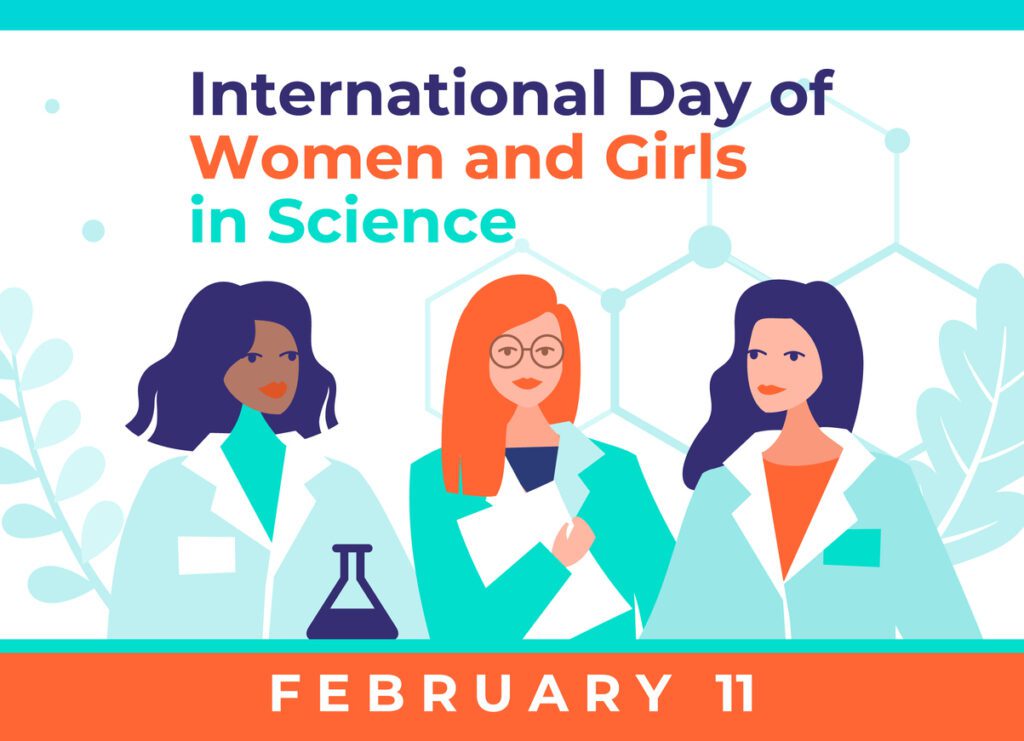February 11, 2023, marks the International Day of Women and Girls in Science, an opportunity to celebrate women’s contributions to science and recognize the importance of eliminating gender disparities in scientific fields. Today, it is essential to recall some of the many vital breakthroughs women scientists have achieved throughout history.
Below I have listed some of the women who have made significant contributions to science:
- Marie Curie (b. November 7, 1867 – d. July 4, 1934) was a Nobel Prize-winning physicist who made groundbreaking discoveries in radioactivity. She became the first woman professor at the University of Paris and won two Nobel Prizes for her research on radiation.
- Chien-Shiung Wu, the First Lady of Physics (b. May 31, 1912 – d. February 16, 1997), was a Chinese-American nuclear physicist who conducted pioneering work on beta decay. She was an influential and groundbreaking figure in the field, disproving the law of conservation of parity.
- Rosalind Franklin (b. July 25, 1920 – d. April 16, 1958) was a British biophysicist who made significant contributions to the study of DNA structure. Her work helped Watson and Crick discover the double helix structure of DNA, for which they were awarded a Nobel Prize.
- Lise Meitner (b. November 7, 1878 – d. October 27, 1968) was an Austrian-Swedish physicist who made critical discoveries that changed our understanding of nuclear physics. She developed theories on nuclear fission, paving the way for nuclear energy production, and played an essential role in developing quantum mechanics.
- Joan Aruz (b. 1942) is an American archaeologist known for pioneering research on ancient civilizations in Central Asia and the Near East. Her work has greatly furthered our understanding of ancient cultures, and she is a prominent advocate for the protection of cultural heritage worldwide.
- Mae Jemison (b. October 17, 1956), an American engineer and physician, was the first African-American woman to travel into space! She took off on September 12, 1992, on her mission aboard the Space Shuttle Endeavour. Jemison was also a professor at Dartmouth College, teaching courses in Environmental Studies and International Health Care Systems. In addition, she founded two technology companies – The Earth We Share (TEWS) and Sophia International.
- Katherine Johnson (b. August 26, 1918 – d. February 24, 2020), an American physicist and mathematician who worked for NASA’s predecessor, the National Advisory Committee for Aeronautics (NACA), was a crucial figure in the development of America’s space program and made significant contributions to calculating trajectories that astronauts used during their first missions into space. She is also renowned for verifying the calculations made with early electronic computers and her work on landings at Cape Canaveral.
- Jane Cooke Wright (b. November 20, 1919 – d. February 19, 2013), an American oncologist and cancer researcher, was an early chemotherapy pioneer. She conducted pioneering studies into the effects of combination chemotherapy treatments on breast cancer patients and advocated for greater attention to black women’s health issues. Her research led to improved cancer treatment protocols that are still used today.
- Fabiola Gianotti (b. October 29, 1960) is an Italian particle physicist who served as head of the European Organization for Nuclear Research (CERN) from January 2016 until December 2020. During her tenure at CERN, she helped to discover the Higgs boson particle, which was a crucial part of our understanding of how particles are held together by something called the ‘Higgs field.’ She has since been appointed as the first women director-general of CERN in its history.
These women, and many others, have significantly impacted scientific fields throughout history. The International Day of Women and Girls in Science acknowledges these contributions while working towards eliminating gender disparities in science today.
Thank you for reading this blog post, and if you have any questions or comments, please leave them in the Comments section below.
© 2019 I Don’t Know All The Answers, Nikki Mastro
All of my photographs and documents are Copyrighted.
The main image for this blog post is from the iStock.com library.

